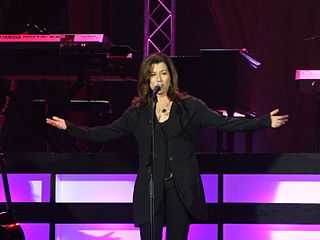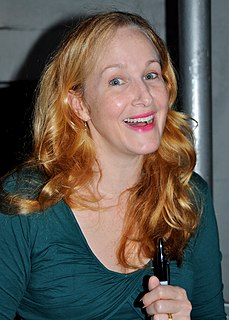A Quote by Martin Scorsese
I don't know how else to tell the story except to utilise that vocabulary: the rain, the darkness, the mansions, the framing, etc, the lighting and that sort of thing.
Related Quotes
When you play guitar you are drawing a frame around a moment and saying to the listener, 'Here is how I want you to experience this. How you begin and end a solo is framing, How you structure a song is framing, how you present yourself onstage is framing. See every corner, not just the center, framing should heighten the impact of the art and give clarity to your vision.
But when I say it isn't meant for anyone's eyes, I don't mean it in the sense of one of those novel manuscripts people keep in a drawer, insisting they don't care if anyone else ever reads it or not.The people I have known who do that, I am convinced, have no faith in themselves as writers and know, deep down, that the novel is flawed, that they don't know how to tell the story, or they don't understand what the story is, or they haven't really got a story to tell. The manuscript in the drawer is the story.
If you gauge how you're doing on whether somebody is responding vocally or not, you're up a creek. You can't do that; you kind of have to be inside of your work and play the scene. And tell the story every day. Tell the story. Tell the story. Regardless of how people are responding, I'm going to tell the story.
The biggest threat to your creativity is the fear that it's already been done, said, created. (So why bother?)
Say it, do it, make it anyway - but tell YOUR story along the way.
The story of how you came to know what you know.
The story of what you want to know more of.
The story of why you do what you do.
The story of how you came to care.
And that's how you create what's never been created before.
When we're in the story, when we're part of it, we can't know the outcome. It's only later that we think we can see what the story was. But do we ever really know? And does anybody else, perhaps, coming along a little later, does anybody else really care? ... History is written by the survivors, but what is that history? That's the point I was trying to make just now. We don't know what the story is when we're in it, and even after we tell it we're not sure. Because the story doesn't end.
Except for the sound of the rain, on the road, on the roofs, on the umbrella, there was absolute silence: only the dying moan of the sirens continued for a moment or two to vibrate within the ear. It seemed to Scobie later that this was the ultimate border he had reached in happiness: being in darkness, alone, with the rain falling, without love or pity.
I was thinking about framing, and how so much of what we think about our lives and our personal histories revolves around how we frame it. The lens we see it through, or the way we tell our own stories. We mythologize ourselves. So I was thinking about Persephone's story, and how different it would be if you told it only from the perspective of Hades. Same story, but it would probably be unrecognizable. Demeter's would be about loss and devastation. Hades's would be about love.







































